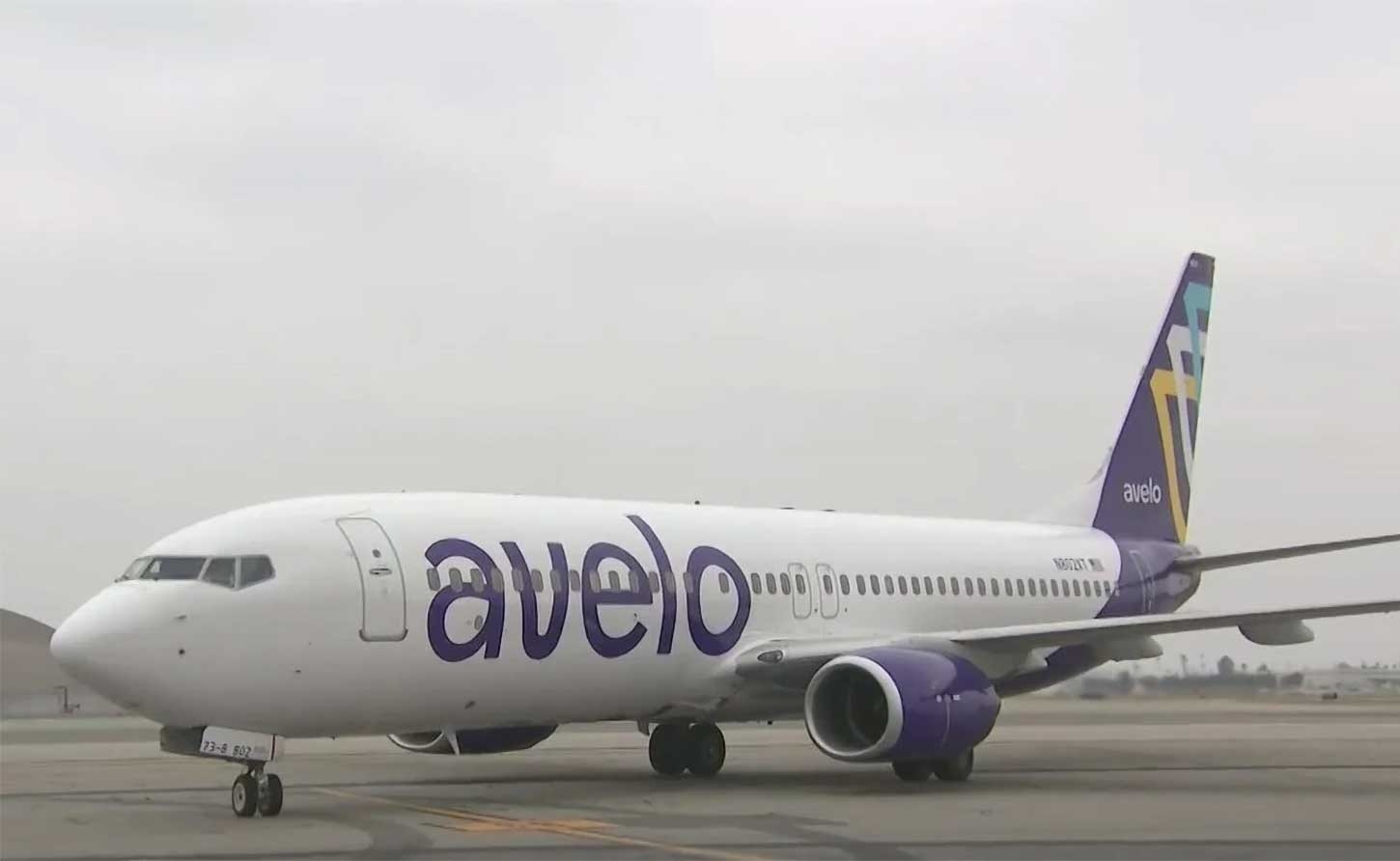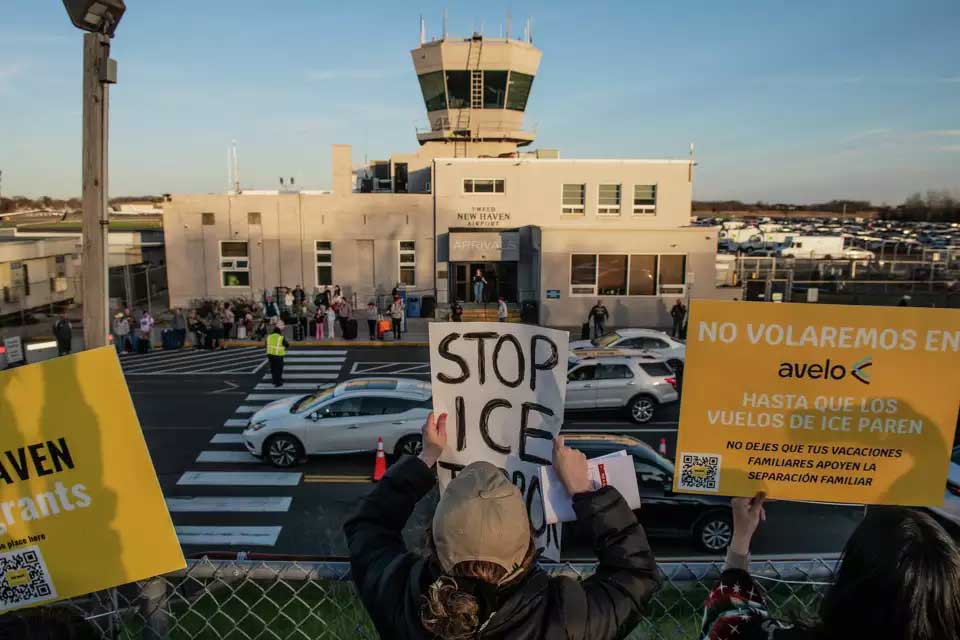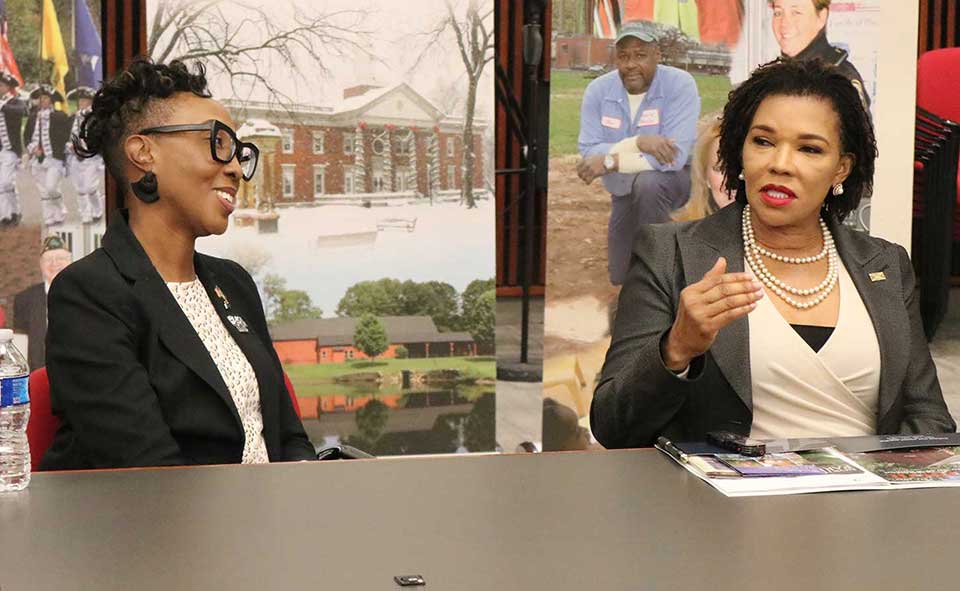JAMAICA | Avelo's Jamaica Route Faces Turbulence Amid Deportation Flight Controversy

MONTEGO BAY, Jamaica May 18, 2025 - As Avelo Airlines attempts to maintain its newly launched flights from Bradley Airport in Windsor, Connecticut to Montego Bay, Jamaica, the budget carrier finds itself in the eye of a political storm that could jeopardize its once-celebrated Caribbean ambitions.
Just six months ago, in November 2024, Jamaica's Ambassador to the United States, Audrey Marks, stood before the Windsor Town Council to enthusiastically endorse this new connection. "This route is of great significance as Connecticut and the surrounding areas represent a major market for visitors to Jamaica," she declared, envisioning a future where "Jamaica is three hours away, like going to Miami."
Now, that optimistic vision has collided with harsh reality. The Houston-based airline, which began operating federal deportation flights for Immigration and Customs Enforcement (ICE) this week, is weathering fierce backlash from customers and activists who find themselves asking a pointed question: How comfortable would Jamaican travelers feel flying on the same airline that's deporting their compatriots?

The irony isn't lost on community organizers—an airline offering twice-weekly leisure flights to Jamaica while simultaneously participating in the deportation of Jamaican nationals under the Trump administration's aggressive immigration policies creates a dissonance that many travelers find impossible to reconcile.
Cultural Bridge Turned Political Battleground
New Hampshire state lawmaker and aviation journalist Seth Miller isn't backing down. After Avelo claimed his protest billboards violated their trademark, Miller sued the airline on Friday, arguing his campaign is protected speech that "clearly mocks Avelo's trademark."
"Avelo is free to disagree with Miller, to criticize him, and to advocate its position to the public," the lawsuit reads. "It is free to call Miller a naif, a fool, or worse. But it is not free to use baseless threats of litigation to suppress Miller's criticism."
The airline's nascent Hartford-to-Montego Bay route—celebrated just months ago as a cultural bridge with "twice-weekly flights operating on Wednesdays and Saturdays"—now faces headwinds from multiple directions. A petition started by the New Haven Immigrants Coalition urging a boycott of Avelo has collected over 34,650 signatures, with organizers explicitly rejecting "the Trump Administration's inhumane deportation practices" and pledging to boycott the airline "as long as they are profiting from ICE flights."
What Ambassador Marks once praised as a vital link for "the sizeable Jamaican diaspora in the region" has become a painful symbol of contradiction for many in that same community. The route that was meant to "strengthen cultural ties" is now intertwined with policies many see as tearing families apart.
Business Ambitions Collide with Community Values
Avelo CEO Andrew Levy defends the decision as a financial necessity. "After significant deliberations, we determined this charter flying will provide us with the stability to continue expanding our core scheduled passenger service and keep our more than 1,100 crewmembers employed for years to come," Levy said in a statement.
The arrangement with ICE, described as a "long-term charter program," begins May 14 from a new hub at Mesa Gateway Airport in Phoenix. The aircraft used for deportation flights will not bear Avelo's logo—a tacit acknowledgment of the reputational risks involved.
Connecticut's Attorney General has already hinted at cutting Avelo's tax breaks and subsidies over the flights, while activists known as Gen Z for Change have released a tool to flood Avelo with applications for crew positions on deportation flights, disrupting the company's recruitment efforts.

From "Vacation Opportunities" to Moral Quandary
Industry experts express surprise at Avelo's decision to enter this contentious space. "I have never seen a retail airline that sells to consumers being used in this way," said Tom Cartwright of Witness at the Border, an activist group monitoring ICE operations. "Typically, charter companies that don't fly retail-type flights. They are not selling tickets directly to consumers."
For travelers like Will Humphries at Sonoma County Airport in California, the choice is clear: "There's not much I can do as an individual, so the limited choices I can make, like switching an airline, is definitely within my ability."
The situation creates a particular quandary for Jamaican travelers and Connecticut's Jamaican diaspora. What Ambassador Marks described as "a vital link for the sizeable Jamaican diaspora" now forces those same community members to confront a difficult question. As the Trump administration's deportation machine targets Caribbean nationals among others, the prospect of booking vacation flights on an airline simultaneously involved in deportation operations presents an uncomfortable moral calculus.
Legal Challenges and an Uncertain Future
Adding further complexity to the situation, the Supreme Court recently blocked deportations that Trump was attempting to carry out using an 18th-century wartime law known as the Alien Enemies Act—suggesting that some of the administration's most aggressive deportation tactics may face legal hurdles.
For Avelo, the financial calculus seems straightforward—federal contracts provide steady revenue. According to USAspending.gov, DHS' roughly 6-month contract this year with CSI Aviation, under which Avelo will operate as a sub-carrier, is worth at least $78.1 million and could rise to as much as $162.2 million.
But as protesters chanting "AvelNO" make clear, the airline's Caribbean routes—once celebrated for their potential to "build an awareness within all of Connecticut... that Jamaica is three hours away"—may become collateral damage in what CEO Levy called "political grandstanding and theatrics." Whether Jamaican travelers will be willing to book seats on an airline simultaneously deporting their countrymen remains the $162 million question that could determine if Avelo's Jamaica gambit will soar or crash-land.
The promise of "tourism, business, and cultural exchanges" that Ambassador Marks envisioned now hangs in the balance, as communities once courted by the airline must decide whether Avelo's corporate choices have fundamentally changed the meaning of its presence in their skies.
-30-
